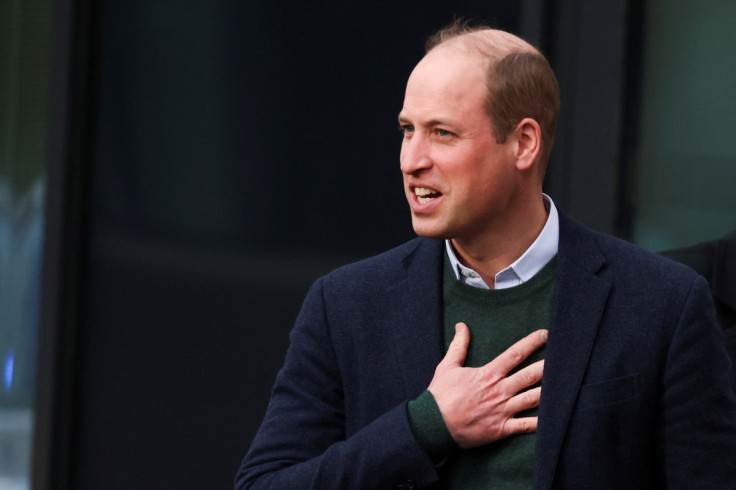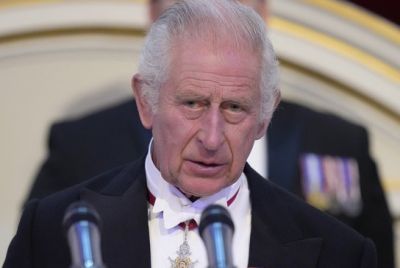Are The Royals Losing Money? King Charles Set To Discontinue 1840's 'Royal Train' To Cut Cost

KEY POINTS
- The end of the royal train marks a symbolic shift in royal tradition.
- Prince William's Duchy of Cornwall waives rents for grassroots charities.
- The Sovereign Grant will jump to £132 million by 2025, fuelled by windfarm profits.
King Charles is ushering in a new era of royal financial responsibility — and one of the monarchy's most historic symbols is on the chopping block. After nearly two centuries of service, the Royal Train, first introduced in 1840, is set to be decommissioned as part of Charles' ongoing mission to modernise the monarchy and cut operational costs.
James Chalmers, the Keeper of the Privy Purse, confirmed the decision as part of the release of the royal household's annual financial report. He was quoted in The Guardian as saying: 'The royal train, of course, has been part of national life for many decades, loved and cared for by all those involved. But in moving forward we must not be bound by the past,' Chalmers stated.
The train, which includes rolling stock from the 1980s, would require extensive upgrades to remain compatible with modern rail systems.
Financial Transparency Meets Modern Challenges
The royal accounts for 2024–25 show that the sovereign grant, the taxpayer-funded allocation for the royal family's official duties, remains at £86.3 million ($118.3 million) for the fourth year running. However, starting in 2025, the grant will rise to £132 million ($181 million) annually until 2027. The increase is fuelled in part by record profits from the Crown Estate's offshore windfarms, which generated £1.1 billion ($1.5 billion) last year.
The funds will also cover the final phase of Buckingham Palace's decade-long, £369-million refurbishment. £100 million ($137.1 million) is earmarked for the palace's restoration in the next two years.
Despite efforts to reduce expenses, royal travel costs rose by £500,000 ($685,482), reaching £4.7 million ($6.4 million). A notable increase in high-cost trips — defined as those over £17,000 ($23,306) — saw 43 such journeys in the past year, compared to 24 the previous year. The King and Queen's state visit to Samoa alone cost taxpayers £401,000 ($549,829).
Royal Sustainability Moves
The palace is also making modest strides toward sustainability. One of the royal Bentleys now runs on biofuel, with the second expected to follow later this year. Discussions are ongoing about adopting electric vehicles across the royal fleet. Two new helicopters that have fuel-efficient systems are also waiting in the wings to provide a faster and more flexible means of transport for the royal family.

Elsewhere, Prince William's Duchy of Cornwall, which generates his private income, also released its financials. Current year profits were placed at £22.9 million ($31.4 million) which is £700,000 ($959,877) lower than the £23.6 million ($32,357,578) of the previous financial year. It's believed that there's less income because the duchy announced rent waivers for grassroots organisations such as homeless shelters, and will offer a 50% rent reduction to registered local charities.
This change follows public scrutiny after a joint Channel 4 and Sunday Times investigation last year revealed the duchy and the Duchy of Lancaster had multimillion-pound rental agreements with institutions like the NHS and the Ministry of Defence.
A New Chapter for the Monarchy
Will Bax, the new secretary and keeper of records for the Duchy of Cornwall, said: 'It's clear we've entered an era of deep change, but we change not because we disrespect our past but precisely because we do respect it.'
In contrast to his father's transparency, Prince William's annual review omitted details of his personal income, expenditures, and tax contributions — a notable retreat from the precedent set by King Charles when he held the title Prince of Wales. The lack of disclosure has raised questions about whether the younger generation of royals will maintain the same standards of public accountability.
As the monarchy adapts to modern pressures and public scrutiny, the retirement of the royal train may symbolise more than just budget tightening — it could mark the beginning of a new royal philosophy: historic but humble, traditional yet transparent.
© Copyright IBTimes 2025. All rights reserved.



















